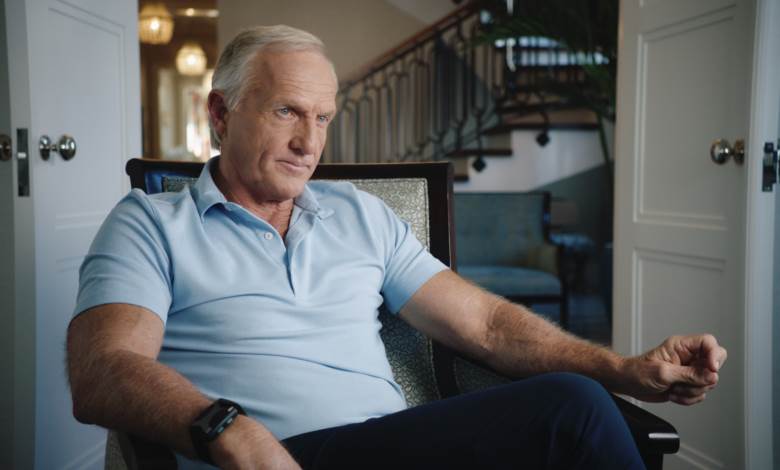ESPN will debut the next installment in the Peabody and Emmy award-winning 30 for 30 series, Shark, on April 5. Directed by Jason Hehir and Thomas Odelfelt, the documentary examines the legendary career of professional golfer Greg Norman, and how it was shaped by one stunning day at the Masters Tournament in 1996.
- Shark will premiere April 5 at 8:00 p.m. ET on ESPN. The film will be made available on ESPN+ immediately after its premiere, along with the rest of the 30 for 30 library.
- Greg Norman played the game of golf only one way: aggressively. And he did it without regret. It led him to two titles at the Open Championship, and one of the most famous careers in the sport’s history.
- And yet his boldness and his uncompromising approach to every round he played also cost him in some historic moments, the most shocking of which unfolded at the 1996 Masters, when Norman gave up a six-shot lead in the competition’s final round.
- A quarter century after that infamous collapse, Norman headed back to Augusta, at long last ready to relive the worst day of his golfing career.
- It’s a moment in sports history that will never be forgotten, but what it says about the man they call the Shark, and the course he never conquered, isn’t quite as simple as you might think.
- Hehir, whose most recent project with ESPN was The Last Dance, will direct.
- The documentary is produced by ESPN Films in association with Words + Pictures.
What they’re saying:
- Co-director Jason Hehir: “There are places in sports that have such a mystique that they can forever shape the way we remember an athlete. Augusta National is one of those places. Greg Norman is by any objective measure one of the greatest golfers to ever play the game. Two-time major winner, 331 weeks at world #1, leading money winner in PGA history pre-Tiger, one of the few indelible players of his era. But despite all his success, he’s perhaps remembered most for his failure at the Masters, particularly his excruciating collapse on final Sunday in 1996. I was excited for the opportunity to tell the story of one man’s career through the prism of such a sacred site, and to examine the power of one place to mold a man’s legacy, for better or worse.”

